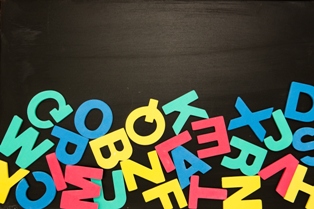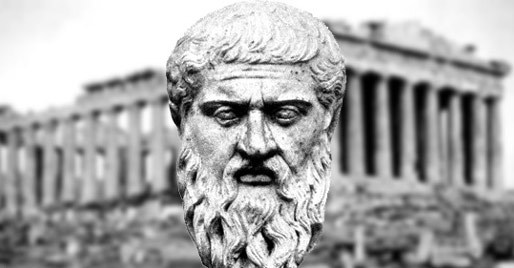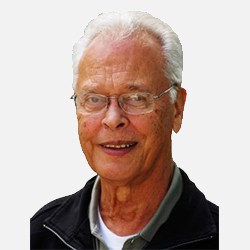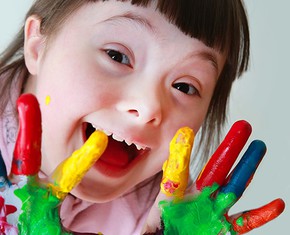The views expressed in our content reflect individual perspectives and do not represent the authoritative views of the Baha'i Faith.
 [Editor’s Note: This is the second installment of a three-part essay. Click here to read from the beginning.]
[Editor’s Note: This is the second installment of a three-part essay. Click here to read from the beginning.]
Humanity’s greatest gift, say Plato and Aristotle, is consciousness — to know; to know that we know; and further, to try to understand what we do not know. Our free will accompanies our consciousness, and together they make us aware, sentient beings, able to choose our course in life.
If God created us, and gave us as a characteristic of our existence the ability to choose, then it stands to reason we simply can’t have it both ways — the ability to choose, but when we make a bad choice, holding Him responsible. Do we hold the vegetable level responsible for the mineral level’s inability to grow through photosynthesis? Are animals responsible for the plant world not being able to receive stimuli though the conduit of the senses? Why should the consistent pattern we see in all life suddenly change with God in His relation to humanity — especially when He chose to allow us the capacity for making choices? We cannot say that we have the ability to choose, and then negate the responsibility for having that capacity by then saying if we make the wrong choice, then God must come and set things right.
While God has given us the ability to make choices, when we get too far astray, to the point of jeopardizing our survival, he doesn’t turn his back and say, “Tough love is what you need — you made your bed, now lie in it!” From age to age God has guided humanity with a continuum of Messengers that have lovingly educated us, given us spiritual laws and set us on the path of love, justice and equity. These Messengers, the Founders of the world’s great Faiths, the Manifestations of God, enable us to reach towards and into God’s domain, speculate about and explore the spiritual reality of life, and contemplate the stage of development we eventually will enter when we die:
All these holy, divine Manifestations are one. They have served one God, promulgated the same truth, founded the same institutions and reflected the same light. Their appearances have been successive and correlated; each one has announced and extolled the one who was to follow and all laid the foundation of reality. They summoned and invited the people to love and made the human world a mirror of the Word of God. Therefore the divine religions they established have one foundation; their teachings, proofs and evidences are one; in name and form they differ but in reality they agree and are the same. These holy Manifestations have been as the coming of springtime in the world. – Abdu’l-Baha, Foundations of World Unity, p. 14.
God, through these Manifestations and Messengers, has given humanity the great gift of faith. At each of the more basic levels of creation this capacity does not exist. At each earlier level of creation, according to Abdu’l-Baha, there exists some form of Spirit that morphs into increasingly more complete levels in the hierarchy of existence, culminating in our capacity for conscious thought and knowing.
 And of course, all living things participate in the various stages of maturation life always requires. Science and philosophy tell us that only two basic processes operate in the universe: entropy and negative entropy. Entropy means disintegration, the loss of energy, a breaking down, a decaying. Negative entropy means growth — a change that moves in the direction of higher and more complex organization. Static actuality is a fable. No such phenomenon (outside the delusional thoughts of humans) actually exists in the physical universe.
And of course, all living things participate in the various stages of maturation life always requires. Science and philosophy tell us that only two basic processes operate in the universe: entropy and negative entropy. Entropy means disintegration, the loss of energy, a breaking down, a decaying. Negative entropy means growth — a change that moves in the direction of higher and more complex organization. Static actuality is a fable. No such phenomenon (outside the delusional thoughts of humans) actually exists in the physical universe.
So scientifically and spiritually, we either progress or regress. Here again we have a choice. We can choose the hell of retrogression, or we can pick the heaven of choosing and then consequently feeling, thinking about and experiencing the stretch-marks of our own growth, development, and progress.
If we choose not to progress – which does not mean staying the same, but means retrogression — we harvest despair, depression, and the existential angst of the ultimately unbearable. But we can change that pathetic, pathological, and intolerable state, the Baha’i writings say. Entropy and despair can transmute from disintegration to growth through the Divine Elixir, i.e., the Word of God, in whatever legitimate form it happens to be presented and received:
Without the intermediary of the Holy Spirit, man would remain dull, helpless and deprived of attainment. But touched by that Divine Elixir he becomes tender, loving, responsive, and capable of every perfection of existence. – Baha’u’llah, Baha’i Scriptures, p. 451.
Of course, simply reading the Word of God, making a surface perusal of the words themselves, may not have much of an effect. Instead, what Baha’u’llah invites humanity to do involves drinking that Divine Elixir – taking in the holy Word and acting on it, allowing the message of the Manifestation of God to remake our souls.
Read the next article in the series: Creating the World We Want
Read the previous article in the series: “If God is Perfect, Why is His Creation Imperfect?”

















Comments
Sign in or create an account
Continue with Googleor